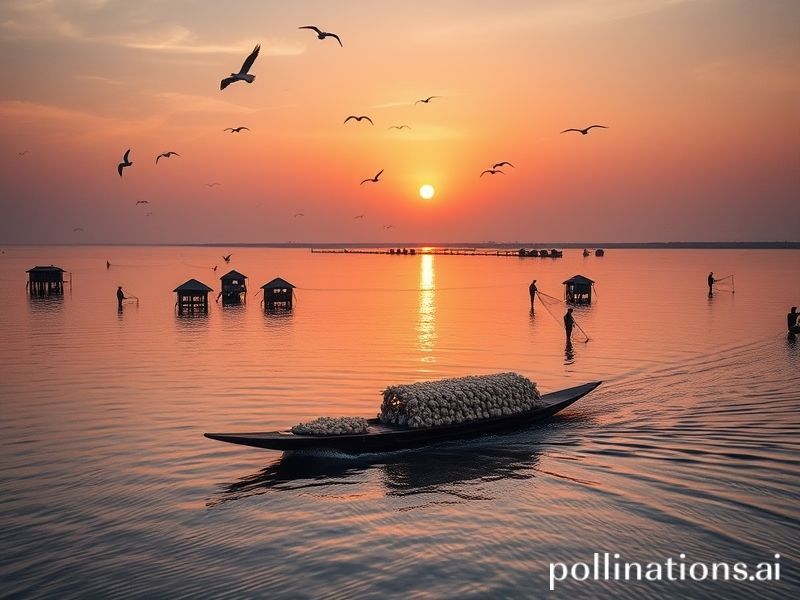Ivory Coast: Where Your Chocolate Bar Gets a Passport and a Mortgage
Abidjan, Thursday night, 23:47 local. I’m sipping a €12 mojito on the rooftop of the Radisson Blu, watching container ships queue like disciplined ants outside the new Port of Abidjan extension. Somewhere below, the lights of Treichville flicker just enough to remind the rest of the planet that Ivory Coast still exists between soccer transfers and chocolate-bar wrappers. The world, bless its goldfish memory, tends to recall Côte d’Ivoire in two bursts: when the cocoa price hiccups and when the French Foreign Legion dusts off its desert boots. Everything else is elevator music.
Yet this sliver of West Africa—roughly the size of a distracted glance at Google Maps—is quietly running several global experiments at once. Take your pick: a petri dish of post-colonial capitalism, a stress test for the EU’s new anti-deforestation import rules, and, most deliciously, a live demonstration of what happens when the Chinese development model meets the Paris Club’s refinancing fetish. If you want an allegory for the 21st-century scramble, forget Ukraine; watch Abidjan negotiate a port concession with Beijing while sending fawning texts to the IMF. Multitasking is the new sovereignty.
Cocoa first, because the Swiss are already anxious. Ivory Coast produces 45 percent of the world’s beans, a statistic that sounds heroic until you realize the average farmer still earns less per day than your barista’s tip jar. Climate change—our era’s most reliable terrorist—has begun playing roulette with rainfall, nudging farmers farther north into what experts diplomatically call “zones of ecological precarity,” and what locals call “next year’s desert.” The EU’s incoming due-diligence law threatens to block beans grown on newly deforested land, which is a bit like asking a man to stop bleeding while you deliberate over the stain on your carpet. Result: European chocolate executives are quietly praying for Ivorian ingenuity, which currently means satellite imagery, blockchain traceability, and the occasional bribe dressed up as a “community sustainability fee.”
Meanwhile, the country is discovering oil off the coast—because God never misses a chance at irony. A modest 2 billion barrels, nothing that will make Riyadh nervous, but just enough for Goldman Sachs to add “emerging frontier darling” to its slide deck. The government has drafted a Sovereign Wealth Fund statute so progressive it could have been ghostwritten by Norway, assuming Norway also had to promise 30 percent of future revenue to an aluminum refinery built by a Russian oligarch with a UAE passport. Analysts applaud the fiscal prudence; cynics note that Ghana’s identical plan circa 2011 now pays for half a parking garage in Accra.
Security? Splendid, provided you ignore the jihadist garage sale happening just north of the border in Burkina Faso. France is downsizing Operation Barkhane faster than you can say “cost-benefit analysis,” leaving Ivorian generals to flirt with Russian instructors who swear the Wagner playlist is strictly defensive. Washington, not to be outdone, has offered drones—an upgrade from the Obama-era fridge-sized models to sleek new quadcopters that can stream 4K footage of your impending doom directly to WhatsApp. Everyone wins, especially the defense contractors who invoice in euros, dollars, and, rumor has it, cocoa futures.
Back in Abidjan, life proceeds with West African exuberance and Parisian pretension. Plate-glass malls sell artisanal Ivorian chocolate at €8 per 100 grams, wrapped in kente-print paper and guilt. On the lagoon, new Chinese-built bridges slice through fishing villages like polite colonialism. The traffic jams—equal parts Toyota Land Cruisers and motorcycle taxis—are so cinematic that Netflix has optioned them for a limited series titled “Gridlock d’Amour.”
So what does Ivory Coast tell the wider world? Simple: globalization no longer knocks; it sublets. Whether you’re a London hedge fund betting on cocoa futures, a Shanghai dredging conglomerate carving out another deepwater berth, or simply a human who likes the occasional KitKat, your fate is already entangled with a country most people still mispronounce. The planet’s supply chains have become the ultimate dark comedy: laugh too hard and you might inhale a fair-trade certificate.
Conclusion? Ivory Coast is not the next anything—no “Singapore of Africa,” no “new Dubai.” It is stubbornly, gloriously itself: a nation bargaining with history while selling the raw material for your Valentine’s Day apology. And if the deal goes sideways, well, there’s always another rooftop bar. The mojitos remain cold; the irony, warmer than the Gulf of Guinea at noon.







